The earth’s natural ecosystem supported only about 4 million people before the dawn of agriculture according to Cohen, 1995. During 2005 the world population stood at 6.44 billion and by 2050 it is expected to be 10 billion. As a consequence, the global food grain demand is also expected to double during this period, making food security an important global issue. Most of this increase will occur in Africa sub Saharan regions and Asia. Agriculture is thus an important advocation in the world for supporting future population increase. Agriculture plays a significant role in the Indian economy. More than 70% of our population is directly dependent on it and 30% of country’s GDP stems from agriculture. Food production in India has increased from 51 MT in 1950-51 to 204.6 MT in 2004-05 (Economic Survey, 2005-06). Productivity has also increased during this period from 542 kg/ha to 1739 kg/ha and cereal productivity from less than 1 tonne to 3 tonnes per hectare. These achievements are exemplary and were largely the result of area expansion, cultivation of high yielding, semi-dwarf varieties responsive to increased application of water, fertilizers and biocides. While Green Revolution has been one of the greatest success stories of India with its dramatic impact on food security, environmental concerns have been growing rapidly all over the world. Efforts are now on to fight environmental threats which adversely affect food security. The Indian population is expected to increase from 1.08 billion in 2005 to 1.6 billion by 2050 making India the most populous country in the world. To meet its requirements, increasing food production will require modern intensive agriculture with all its components. Inspite of several dimensions of the problem, no attempt so far seems to have been made to analyze all these aspects of agriculture in relation to environment. A wealth of information is now available on each of the different components causing environmental degradation and several strategies to minimize or manage have also been suggested. The authors, therefore, conceived this publication in which all related issues have been discussed in 5 different sections.

Environment and Agriculture
$72.00
$80.00
In stock
Free & Quick Delivery Worldwide
All orders amounting to US$ 50 or more qualify for Free Delivery Worldwide. For orders less than US$ 50, we offer Standard Delivery at $14 per book.
ABOUT THE AUTHOR K.L. Chadha
Born on November 15, 1936, Dr. K.L. Chadha obtained his Bachelors and Masters degree in Agriculture (Hort) from Punjab University, Chandigarh in 1955 and 1960 respectively. He specialized in viticulture during his doctoral studies at IARI, New Delhi (1960-63). He has been actively associated with teaching, research and development of grapes in his capacity as a Fruit Specialist of Punjab Agricultural University, Ludhiana, as a Project Coordinator (Fruits including grapes) at national level, as Director, Indian Institute of Horticultural Research, Bangalore and as ICAR National Professor in Horticulture at IARI, New Delhi. His areas of specialization have been ampelography, training and pruning, nutritioiin and use of growth regulators in grape production. Dr. K.L. Chadha has been Secretary of the “Group on Vitiulture in the Tropics†Gold Medal from Andhra Pradesh Grape Growers’ Association (1994), a silver Plaque from the Maharashtra Research and Development Trust for his outstanding contributioins to grape research and development in the country. He is a Fellow of National Academy of Agricultural Sciences, New Delhi (1992) and was awarded Doctorate of Science (Honoris causa) by Chandra Shekhar Azad University of Agriculture & Technology, Kanpur in 1995. Dr. Chadha has won several prestigiouis awards – Borlaugh Award (1984), Om Prakash Bhasin Award (1992), Dayavati Vira Medal (1993), Pisang Raja Award (1996), and Marigowda Memorial Award (1996). He has edited / written 21 books, 7 bulletins and published 146 research and 136 popular articles. Dr. Chadha is sthe Chief Editor of the series “Advances inHorticulture†published in 13 volumes covering 9,410 pages. He has been President of several Horticultural Socieites..
ABOUT THE AUTHOR M S Swaminathan
Prof. M. S. Swaminathan, a fellow of the Indian National Science Academy, the Royal Society of London, and US National Acadeny of Sciences, Professor Swaminathan has been Chairman of the UN Scientific Advisory Committee for Science and Development, President of the World Conservation Union (IUCN) and Independent Chairman of the FAO Council. He is Currently UNESCO Chair in Ecotechnology and Chairman of the M S Swaminathan Research Foundation, Chennai, India.
reviews
0 in total
Review by Anonymous
Be the first to review “Environment and Agriculture” Cancel reply
You must be logged in to post a review.
Bibliographic information
Title
Environment and Agriculture
Author
Edition
1st ed.
Publisher
ISBN
8185048436
Subjects
more by K.L. Chadha see more
Temperate Fruits and Nuts : A Way Forward for Enhancing Productivity and Quality
The present book is a ...
$165.60
$184.00
Managing Postharvest Quality and Losses in Horticultural Crops (In 3 Volumes)
This book is a consolidation ...
$269.10
$299.00
more by M S Swaminathan see more
similar bookssee more
Microelectronics: Micro and Nano Electronics and Photonics
Microelectronics is a key ...
$52.20
$58.00


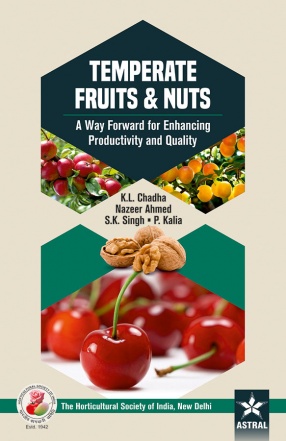
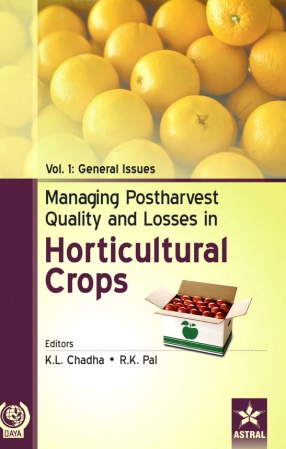
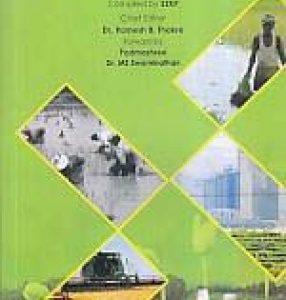
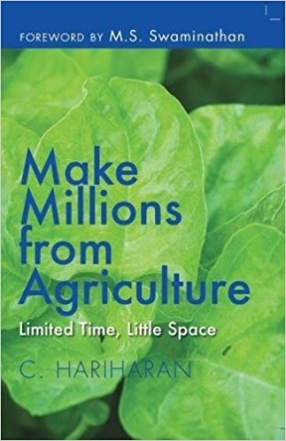
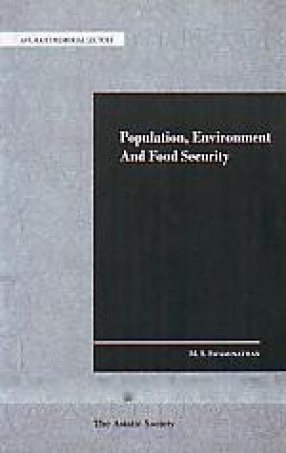

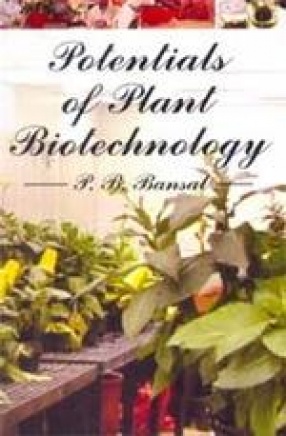
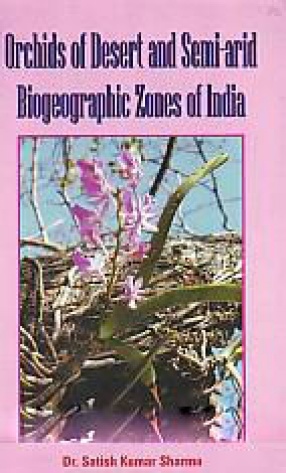
There are no reviews yet.